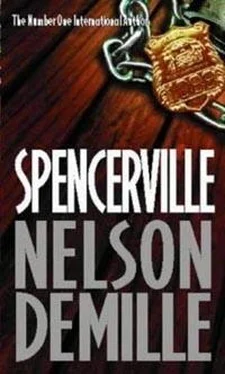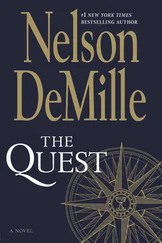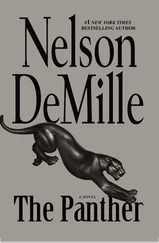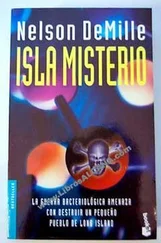Billy said, "That definitely goes to the lake, but they always run along a road, and I don't see no road."
Keith stood near the utility pole, then walked into the woods and grasped an eight-foot-tall white pine by its trunk, shook it, then pulled it out of the ground.
Billy looked at the base of the sawed-off trunk and said, "Jeez... this guy must be a gook."
Keith kicked another pine, and it tumbled. Someone, undoubtedly Cliff Baxter, had camouflaged the narrow dirt road that led to his lodge with cut pine trees, each about eight or ten feet high. There were about a dozen of them implanted into the dirt road, running back about twenty feet, giving the impression of a continuous forest. They were still green, Keith noticed, and would stay green for weeks, but they were slightly tilted and smaller than the surrounding pines.
Keith also noticed that where the dirt road met the blacktop was strewn with deadwood and pine boughs to conceal the tire ruts leading into the hidden road. Not a great job, Keith thought, but good enough to keep a lost or curious driver from turning into the road that led to Baxter's lodge.
Keith looked around and found a signpost that had been chopped at the base and pushover onto the ground. There was no sign on the post that said, "Big Chief Cliff's Lodge," but Keith was certain there had been.
It was obvious, Keith thought, that Cliff Baxter wanted no visitors, casual or otherwise. And the same laboriously transplanted pine trees that kept people out kept Baxter from making occasional forays into the outside world. So there was no chance of staking out the road, waiting for Baxter to leave for a while, and rescuing Annie without putting her in danger of a fight. Apparently, Baxter had everything he needed for a long stay. The essential questions, of course, were, Did he also have Annie and was she alive? Keith was almost certain that he did have her, and she was alive, if not well. This was the whole point of Baxter's flight to this remote lodge — to imprison his unfaithful wife and to take out his anger and rage on her without any interference from the outside world.
It occurred to Keith that ultimately, regardless of Keith Landry — or someone like him — this was where the Baxters were destined to end up, sooner, if not later, though Annie may or may not have understood the psychological subtext of this hunting lodge and future retirement home. He recalled something she'd said. The few times we went up there alone, without the kids or without company, he was another person. Not necessarily better, and not actually worse... just another person... quiet, distant, as if he's... I don't know... thinking of something. I don't like to go up there with him alone, and I can usually get out of it.
One could only imagine, Keith thought, what Cliff Baxter was thinking about. One could only hope that whatever he'd done to Annie in the last three days, to her mind and her body, was not permanent or scarring.
Keith and Billy went back to the pickup and collected their gear, then returned to the place where the camouflaged road began. They both knew not to walk through the camouflage or on the open dirt road beyond it, and they entered the woods to the right of the road and began walking on a parallel course to it, keeping it in view when they could. They maintained their heading with the compass and an occasional sighting of the small utility poles that ran along the road.
After about fifteen minutes of slow progress, Keith stopped and knelt down, listening to the forest. Billy knelt beside him and they stayed motionless for a full five minutes. Finally, Billy whispered, "Sounds okay, smells okay, feels okay."
Keith nodded.
Still whispering, Billy said, "I know that camouflage back there looks like Baxter's work, but how we gonna be sure the house at the end of those wires is his? We don't know what it looks like, and we ain't gonna knock before we shoot."
Keith said, "It's an A-frame, dark wood, set back from the lake."
"Yeah? You know more than you say, don't you?" He added, "Typical officer."
Keith replied, "I think you know everything I know now. I told you up front this was going to be dangerous."
"Yeah, you did."
"I'll tell you something else — I took you along for you, not for me. But I appreciate the help."
"Thanks."
"If I take you the rest of the way, I want you to promise me that you'll finish the job if I'm not able to."
Billy looked at Keith and nodded. "You know I got my own reasons, and you got yours... so if one of us is down, the other guy's gonna give it his best shot."
Keith hesitated, then said, "Okay... and if it turns out at the end that it's just you and her, you tell her... whatever."
"Yeah, I'll tell her whatever." He asked, "Anything in particular?"
There was, but Keith said, "Just tell her about today."
"Okay. You do the same for me." He added, "Maybe she don't care, but she should know."
"Will do." Keith had the distinct feeling he'd had this conversation before, in other places with other people, and he was definitely tired of it. He said, "Let's move."
They continued on through the forest. Keith tried to guess how thorough Baxter had been in his preparations. Camouflage was okay, but an early-warning device was essential. That was what the dogs were for, of course, but the thing that concerned him most was a trip flare, though he wondered if Baxter, who had no military experience, had thought of such a thing. Still, he stepped high as he walked, and so did Billy, he noticed, who had the same thing on his mind. It was interesting, Keith thought, how much old soldiers remembered, even guys like Billy. But after you'd seen your first trip wire set off by someone else — whether it led to a flare or an explosive booby trap — you didn't want to repeat the experience.
The moon was higher now and cast some light into the pine forest, but Keith still couldn't see more than twenty feet in front of him. It was colder than Keith had imagined it would be, and a wind had come up from the direction of the lake, adding to the chill.
They moved slowly, covering about half a mile in thirty minutes. Keith slowed down, then stopped and pointed.
Up ahead, they could see the beginning of a clearing through the pines, and at the end of the clearing, the moonlit waters of Grey Lake.
They moved another twenty yards and stopped again. To their right, about a hundred yards away, sitting in the large clearing that ran to the lake's edge and silhouetted against the lake, was an A-frame house of dark wood.
They both stared at the house a moment, then Keith raised his binoculars. The house had sort of an alpine look and was built on cement-block columns, he saw, also that it was elevated a full story above the ground. A raised, cantilevered deck ran completely around the house, giving Baxter a full 360-degree view from a raised vantage point. A stone chimney rose from the center of the roof, and smoke drifted toward them, so they were upwind from any dogs. Parked in the open garage beneath the A-frame structure was a dark Ford Bronco.
The house was set at an angle to the lakeshore, so that Keith could see the front of the house as well as the long north side. Light came from the dormered windows set into the sloping roofline and also from the sliding glass doors that led onto the deck, and, as he watched, a fleeting figure — he couldn't tell if it was a man or a woman — passed in front of the glass doors.
Keith lowered the binoculars. "This is it."
From the direction of the house, a dog barked.
Cliff Baxter strapped on his holster and put on his bulletproof vest. He went to his gun rack and took down his Sako, model TRG-21, which was his night rifle, with an Army-surplus infrared scope mounted on it. The rifle, made in Finland, had cost the taxpayers of Spencerville four thousand dollars, and the scope another thousand, and in his opinion, the rifle and scope together made about the most accurate and deadly night-sniper system in the world.
Читать дальше












